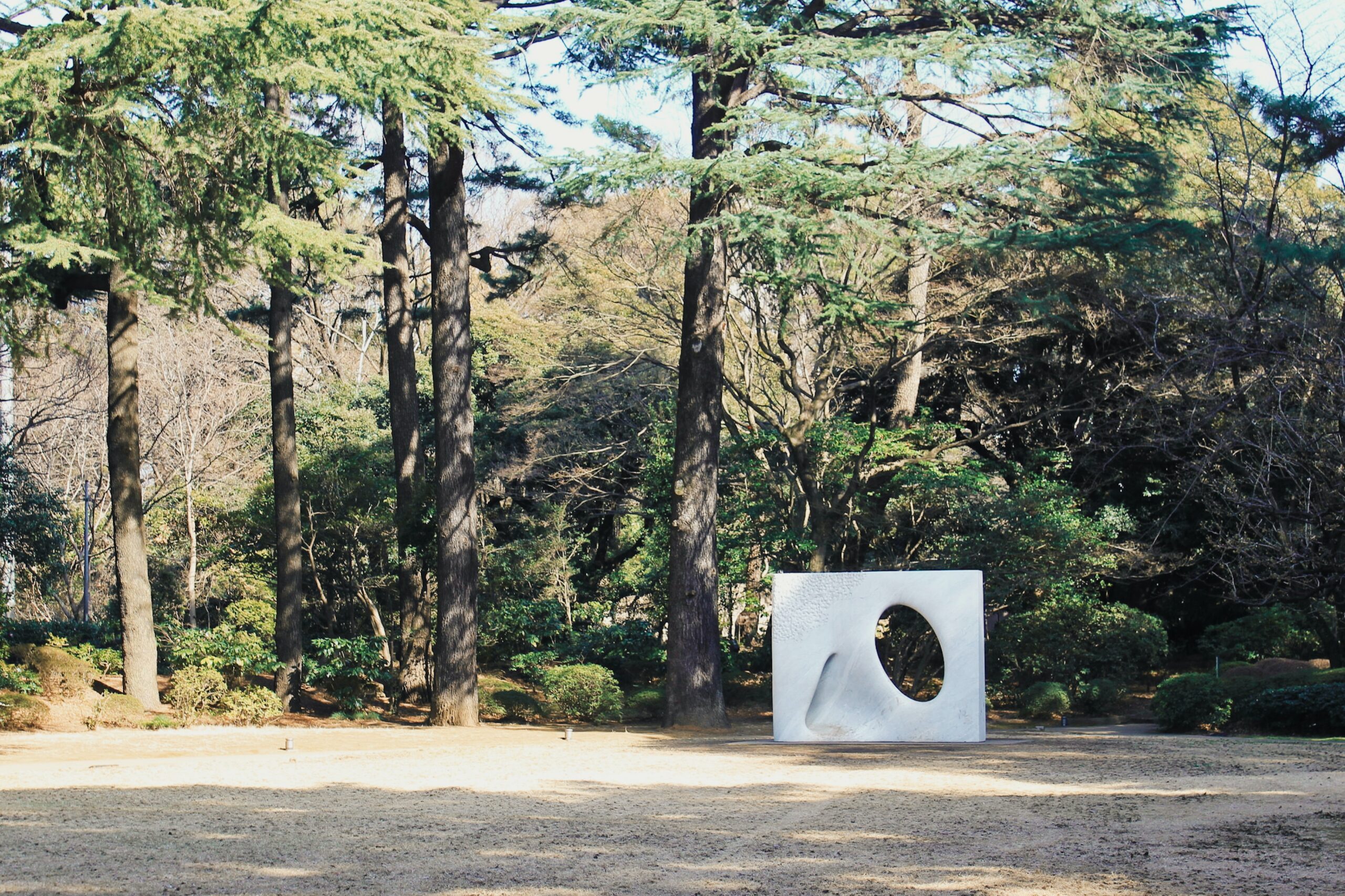
What Are The Options For Exploring Local Natural Science Or Ecology Museums?
Have you ever wondered about the exciting possibilities for exploring the intriguing world of local natural science or ecology museums? If you are eager to uncover the wonders of our planet and learn more about the fascinating scientific discoveries and ecological marvels, then you are in for a treat. From interactive exhibits that engage all your senses, to thrilling guided tours and educational workshops, there are countless options waiting for you to embark on a journey of discovery and enlightenment. So, grab your curiosity and let’s explore the vibrant world of local natural science and ecology museums together!

Online Research
When it comes to exploring local natural science or ecology museums, one of the first steps you can take is to conduct online research. The internet is a valuable resource that can provide you with a wealth of information about museums in your area. Start by searching for local natural science or ecology museums using search engines such as Google. You will likely find a list of museums that are located near you.
Search for Local Natural Science or Ecology Museums
To begin your online research, use search terms such as “natural science museums near me” or “ecology museums in [your location].” This will help you find museums that are specifically dedicated to the fields of natural science and ecology. These museums are a great option if you have a specific interest in these subjects and want to explore them further.
Check Websites and Social Media Pages
Once you have found a list of museums in your area, visit their websites to gather more information. Museum websites often provide details about their exhibits, collections, educational programs, and upcoming events. Additionally, many museums maintain active social media pages, such as Facebook, Instagram, and Twitter, where they regularly share updates and engage with their audience.
Read Reviews and Ratings
Another important aspect of online research is to read reviews and ratings of the museums you are interested in. Websites like TripAdvisor and Yelp provide valuable insights from previous visitors who have had firsthand experiences with these museums. Reading reviews can give you a sense of the museum’s overall quality, the exhibits they offer, and the experiences of other visitors. Take note of both positive and negative reviews to get a well-rounded understanding of the museum.
Visitor Information
Once you have gathered information about the local natural science or ecology museums in your area, it’s important to consider the practical aspects of visiting these museums. Here are some key points to keep in mind:
Operating Hours
Before planning your visit, check the operating hours of the museum you intend to visit. Museums may have specific hours of operation, and some may be closed on certain days of the week or during holidays. It’s important to verify the museum’s opening and closing times to ensure that you can make the most of your visit.
Admission Fees and Discounts
Museum admission fees can vary depending on the institution and the type of exhibits they offer. Some museums may have a general admission fee, while others may charge different rates for specific exhibits or special collections. It’s worth checking if the museum offers any discounts, such as senior or student rates, or if they have certain days or times when admission is free or reduced.
Accessibility and Amenities
When planning your visit to a natural science or ecology museum, consider the accessibility of the facility. Check if the museum has accessible entrances, ramps, and elevators for individuals with disabilities. Additionally, find out if the museum offers amenities such as parking facilities, restrooms, cafeterias, or gift shops. These factors can greatly enhance your overall museum experience.
Exhibits and Collections
The heart of any natural science or ecology museum lies in its exhibits and collections. These are the main attractions that allow visitors to learn, explore, and engage with various aspects of the natural world. Let’s delve into the types of exhibits and collections you can expect to find:
Permanent Exhibits
Most museums have permanent exhibits that provide a comprehensive overview of a particular subject or theme. These exhibits are typically designed to be informative, engaging, and educational. From displays of fossils and dinosaur skeletons to interactive exhibits showcasing different ecosystems, permanent exhibits offer a wealth of knowledge and insight into the natural world.
Temporary Exhibits
In addition to permanent exhibits, many natural science and ecology museums feature temporary exhibits that change periodically. These exhibits often highlight specific topics or research areas within the field. By hosting temporary exhibits, museums can provide visitors with fresh and exciting content, ensuring that there is always something new to discover with each visit.
Special Collections
Some museums go beyond exhibits to house special collections that are of significant scientific or historical value. These collections may include rare specimens, artifacts, or documents that offer insight into specific areas of study or research. Special collections are usually curated with meticulous care and may require special permission or appointments for viewing.
Guided Tours
If you prefer a more structured and informative experience during your visit to a natural science or ecology museum, guided tours can be an excellent option. Guided tours provide an in-depth exploration of the museum’s exhibits, collections, and educational resources. Here’s what you need to know about guided tours:
Overview of Guided Tours
Guided tours are conducted by knowledgeable staff or volunteers who are passionate about the museum’s subject matter. These tours are designed to provide visitors with an expert-led experience, focusing on the highlights and key points of interest within the museum. Guides often share fascinating facts, stories, and insights that enhance the overall understanding and appreciation of the exhibits.
Availability and Scheduling
Before planning to join a guided tour, it’s essential to check the availability and scheduling options. Some museums offer guided tours at specific times throughout the day, while others may require booking in advance. It’s advisable to inquire about the availability of guided tours and make any necessary reservations to ensure you can participate in this enriching experience.
Guided Tours for Different Age Groups
Museums often cater to visitors of all ages, and guided tours reflect this diversity. Find out if the museum offers guided tours that are specifically tailored for different age groups, such as children, families, or adults. This way, you can choose a tour that best suits your interests and enables you to engage with the exhibits on a level that is appropriate for your age and knowledge level.

Educational Programs
In addition to exhibits and guided tours, many natural science and ecology museums offer a range of educational programs. These programs provide opportunities for visitors to delve deeper into specific subjects through interactive activities, workshops, and presentations. Here are some educational programs commonly available:
School Field Trips
One of the primary educational offerings of natural science and ecology museums is school field trips. These programs are designed to align with educational curricula and provide students with hands-on learning experiences that complement classroom teachings. Field trips often include guided tours, interactive activities, and workshops that engage students in scientific exploration and discovery.
Workshops and Classes
Museums frequently organize workshops and classes for both children and adults. These programs allow participants to delve into specific topics or skills related to natural science or ecology. Workshops can range from nature photography and birdwatching to botanical drawing and wildlife conservation. Participating in workshops and classes can deepen your understanding of the natural world while honing new skills or interests.
Lectures and Presentations
For those seeking a more intellectual and informative experience, attending lectures and presentations offered by natural science and ecology museums can be a great option. These events often feature experts, scientists, or researchers who share their knowledge and insights on a variety of subjects. Lectures and presentations may cover topics such as climate change, biodiversity, or the latest scientific discoveries.
Interactive Activities
Natural science and ecology museums strive to engage visitors in a hands-on and interactive manner. Through various exhibits and activities, visitors can actively participate in their learning experience and gain a deeper understanding of scientific concepts. Here are some interactive activities commonly found in these museums:
Hands-On Exhibits
Hands-on exhibits are designed to encourage visitors to actively engage with the exhibits and explore scientific concepts through tactile experiences. These exhibits may include touch screens, manipulative models, microscopes, or actual specimens that visitors can handle. By interacting with the exhibits, visitors can deepen their understanding and develop a sense of curiosity and wonder.
Interactive Stations
Natural science and ecology museums often have interactive stations strategically placed throughout the exhibits. These stations enable visitors to perform hands-on experiments, observe live specimens, or engage in multimedia presentations. Interactive stations provide opportunities for visitors to learn and explore at their own pace, fostering a sense of discovery and inquiry.
Virtual Reality Experiences
With advances in technology, many museums are incorporating virtual reality (VR) experiences into their exhibits. VR allows visitors to have immersive and lifelike experiences that would otherwise be impossible. Visitors can explore distant ecosystems, walk among ancient creatures, or even go on virtual expeditions. Virtual reality experiences provide a unique and captivating way to learn about the natural world.

Events and Workshops
Natural science and ecology museums often host a variety of events and workshops throughout the year. These events offer additional opportunities for visitors to engage with the museum, interact with experts, and participate in specialized activities. Here are some examples of events and workshops:
Upcoming Events
Keep an eye out for upcoming events at local natural science and ecology museums. These events may include themed exhibitions, special showcases, guest speakers, or even festivals celebrating the natural world. Attending these events can provide a unique and memorable experience that goes beyond the typical museum visit.
Nature Workshops
Nature workshops are specifically designed to provide participants with hands-on experiences in outdoor environments. These workshops may involve activities such as wildlife tracking, plant identification, or nature photography. By participating in nature workshops, visitors can deepen their understanding of the natural world while enjoying the beauty and serenity of outdoor spaces.
Science Demonstrations
Science demonstrations are captivating presentations that showcase scientific concepts and phenomena in an engaging and interactive manner. These demonstrations often involve live experiments, expert explanations, and audience participation. Science demonstrations can be both educational and entertaining, leaving visitors with a greater appreciation for the wonders of science.
Membership and Benefits
If you find yourself repeatedly visiting local natural science or ecology museums, you may consider becoming a member. Museum memberships offer several perks and benefits that can enhance your museum experiences. Here’s a breakdown of membership options and their accompanying advantages:
Membership Options
Museums typically offer various membership options to cater to the diverse needs and preferences of their visitors. Membership levels may include individual, family, or student options. Some museums also offer higher-tier memberships that provide additional benefits or exclusive access to special events. Choose a membership option that best suits your needs and level of engagement with the museum.
Perks and Benefits
Becoming a museum member often comes with a range of perks and benefits. These can include unlimited free admission to the museum, access to members-only events or exhibits, discounts on workshops or educational programs, and priority booking for guided tours or special events. Memberships can significantly enhance your museum experiences and make each visit more enjoyable.
Special Discounts
Membership in a natural science or ecology museum may also entitle you to special discounts or exclusive offers. These discounts can extend beyond the museum itself and include partnerships with other local businesses or attractions. Check if your membership comes with any additional benefits, such as discounted prices at the gift shop or cafeterias, or reduced rates for museum-related merchandise.

Volunteer and Internship Opportunities
For those who wish to be more involved in the operations and activities of natural science or ecology museums, volunteer and internship opportunities provide valuable avenues for participation. Here’s an overview of these opportunities:
Volunteer Programs
Many museums rely on the support of volunteers to assist with various tasks, including guided tours, exhibit maintenance, and educational programs. Volunteering at a natural science or ecology museum can be a rewarding experience that allows you to contribute to the museum’s mission while expanding your knowledge and skills. Contact the museum’s volunteer coordinator to inquire about current or upcoming volunteer opportunities.
Internship Opportunities
If you are a student or recent graduate looking to gain practical experience in the field of natural science or ecology, internships at museums can provide valuable learning opportunities. Museums often offer internships in departments such as education, research, or curatorial services. Internships can be either paid or unpaid, depending on the museum and the specific role. Research available internships and carefully follow the application process to increase your chances of being selected.
Application Process
When applying for volunteer or internship opportunities, it’s important to carefully follow the museum’s application process. This often includes submitting a resume, cover letter, and possibly references. Take the time to tailor your application to highlight your relevant skills, experiences, and enthusiasm for the museum’s mission. A well-crafted application can greatly increase your chances of being selected for a volunteer or internship position.
Supporting the Museums
Lastly, if you would like to support your local natural science or ecology museums beyond being a visitor or member, there are several ways to contribute and make a difference. Here are some ways to support museums:
Donations
Museums rely on financial support from both visitors and donors to fund their operations, exhibits, and educational programs. Making a donation to your local natural science or ecology museum can have a significant impact on their ability to continue providing enriching experiences for visitors of all ages. Donations can be made directly through the museum’s website or in-person at the museum itself.
Fundraising Events
Many museums organize fundraising events throughout the year to engage the community in their mission and raise funds for specific projects or initiatives. These events may include galas, auctions, or themed fundraisers that offer a unique and enjoyable experience while supporting the museum’s work. Keep an eye out for upcoming fundraising events at your local natural science or ecology museum and consider attending or making a contribution.
Corporate Sponsorship
Corporate sponsorship is another way companies can support local natural science or ecology museums. By forming partnerships with museums, businesses can contribute financially or through in-kind donations. In return, museums may offer benefits such as brand exposure, public recognition, or exclusive access to events. If you own or work for a company that values the importance of science education and environmental awareness, consider exploring corporate sponsorship opportunities with your local museum.
In conclusion, exploring local natural science or ecology museums can be a fascinating and enriching experience. Through online research, visitor information, exhibits and collections, guided tours, educational programs, interactive activities, events and workshops, membership benefits, volunteer and internship opportunities, and supporting the museums, you can engage with the natural world and deepen your understanding of scientific concepts. So, go ahead and embark on your journey of discovery and exploration at your local natural science or ecology museum.




